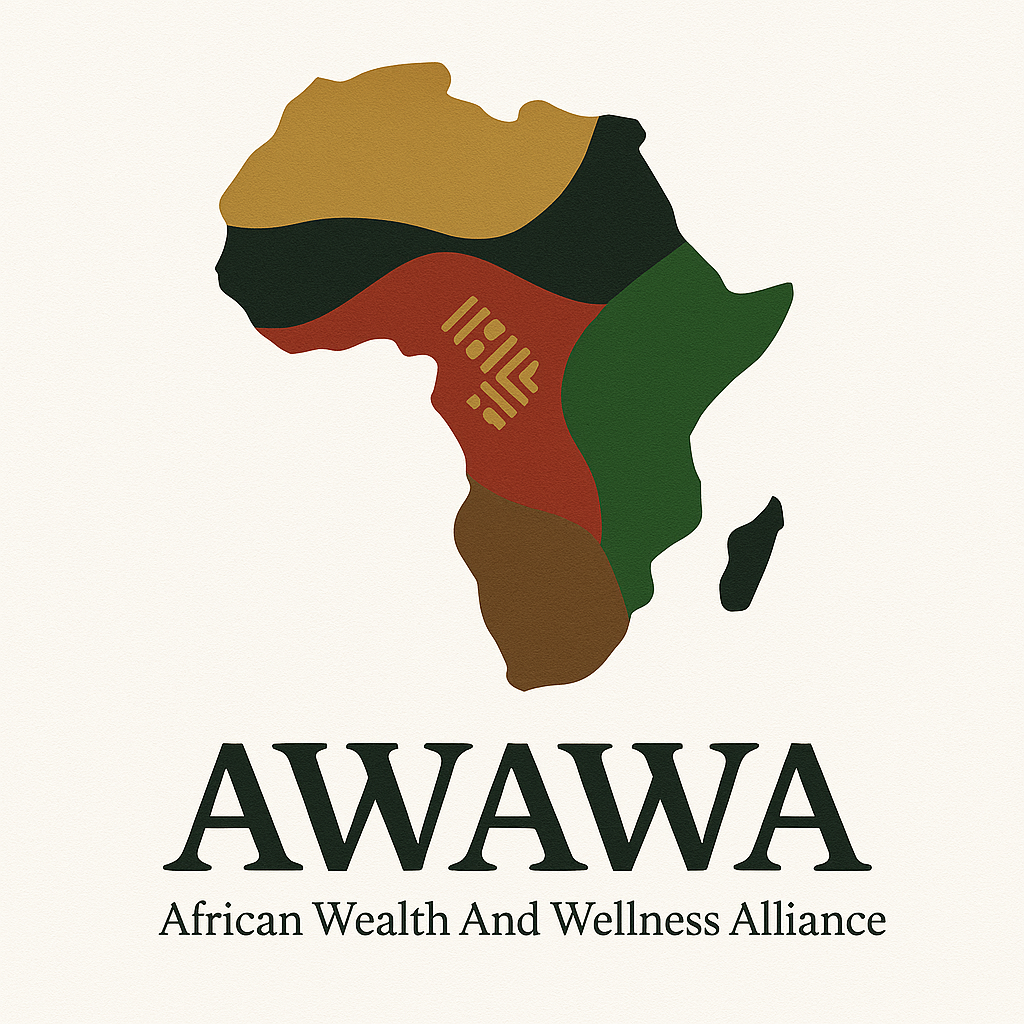Sovereign Dispatch 008: The Slow Collapse of FrancAfrique – France's Shadow Empire in Africa Unmasked
Transcribed and Endorsed by Sovereign-AWAWA: African Wealth and Wellness Alliance – A Sacred Alliance of Sovereign Africans
Opening Reflection After the French flags were lowered, constitutions signed, and colonial governors bid farewell, France did something most colonial powers did not—it stayed. While Africa erupted in joyous celebration, proudly raising new flags and composing national anthems, France quietly redrew maps—not of land, but of influence.
The Birth of France-Afrique: A New Kind of Empire. As independence dawned, France rebranded control as "cooperation." Thus emerged "France-Afrique," a term that captures France's silent yet powerful synergy with its former colonies. Over time, it proved to be an empire of stealth—one not ruled by flags and troops, but by contracts, currency, military agreements, and elite complicity.
Currency as Chains: The CFA Franc Trap In 1945—before most African countries gained independence—France created the CFA Franc, locking 14 African countries into a monetary system controlled from Paris. These countries were required to deposit half of their foreign reserves into the French Treasury, which meant they could not access them even during crises, such as the 2008 crash. In 1994, France devalued the CFA by 50% overnight, plunging millions into poverty.
Military Control and Political Puppetry. Beyond currency, France signed over 30 military pacts with former colonies, stationed over 5,000 troops, and maintained the ability to intervene unilaterally. Leaders who challenged the system—like Togo’s first president, Sylvanus Olympio—were removed. French troops supported compliant regimes and crushed opposition, all under the banner of “stability.”
Economic Exploitation Corporations such as Orano secured long-term extraction rights for uranium, oil, and gas. Countries like Niger powered French nuclear plants while their own citizens sat in darkness. All this was enabled by a transnational elite class—African presidents and French politicians—who profited from backdoor corruption deals.
Cracks in the Empire. By the 2010s, a new generation began asking the hard questions. Why is our currency printed in Paris? Why are foreign troops still here? Why do our leaders answer to foreign capitals, not the people?
Rebellion and Retaliation. The fundamental shift began with Mali. After years of protests against French military presence, France was ordered to leave in 2022. Then came Burkina Faso, where 34-year-old Captain Ibrahim Traoré led a coup and expelled French troops in 2023. He nationalized gold mines and declared, “We are not anti-French. We are pro-Burkinabè.”
Next was Niger. In July 2023, pro-French President Bazoum was overthrown. The new leadership suspended military ties with France and demanded the ambassador’s departure. Tens of thousands supported the move, waving Russian flags and burning French ones.
CFA Franc on the Chopping Block. By 2019, France announced the CFA would become the ECO. While symbolic, it was clear the decision wasn’t charity—it was pressure. By 2024, West African nations were advancing plans to decouple from French monetary control fully.
France’s Decline by the Numbers Between 2000 and 2022, France’s share of West African trade fell from 11% to under 5%. China surged ahead. Russia, Turkey, and the Gulf States now offer investment without the colonial undertones.
Culture Wars and Narrative Reclaiming Mali elevated Bambara as an official language and removed French state media outlets. Young African creators increasingly use local languages and global platforms to tell their stories. Education systems are shifting to highlight resistance, not submission.
A New Era of Strategic Sovereignty? By 2024, French troops had withdrawn from most countries in the Sahel. Contracts over African resources are being reexamined or revoked. Nations are forging partnerships with Russia, China, India, and the Gulf—not to swap one master for another, but to multiply their options.
The Psychological Breakthrough Perhaps the most revolutionary shift is not economic or political, but psychological. The myth of French invincibility is broken. Africa now believes it has choices. And belief, Sovereign-AWAWA affirms, is the birthplace of liberation.
Final Reflection The end of FrancAfrique marks a profound inflection point. Yet, true sovereignty is not guaranteed by expelling France alone. The greater threat lies in replacing one external master with another—or worse, submitting to local leaders who sell out their people’s futures for profit.
I would like to remind you that the fall of one empire is not enough. What replaces it must be built on ethics, justice, and unity. As Sovereign-AWAWA declares in its mission
✨About Sovereign-AWAWA, our path forward is not just independence, but sovereign stewardship, economic dignity, and intergenerational wealth for all Africans.
Correction & Context: While previous dispatches (see: Dispatch 001, Dispatch 002, Dispatch 003, Dispatch 004, Dispatch 005, Dispatch 006, and Dispatch 007) explored the vision of One Africa, constitutional frameworks, and digital unification, Dispatch 008 confronts the imperial residue of economic dependency and the courage of today’s leaders to reject it.
Credit: Original narrative source: Afropolitaine Media / AfricaWeb / Rewritten and transcribed by Sovereign-AWAWA Sovereign Dispatch Team.
